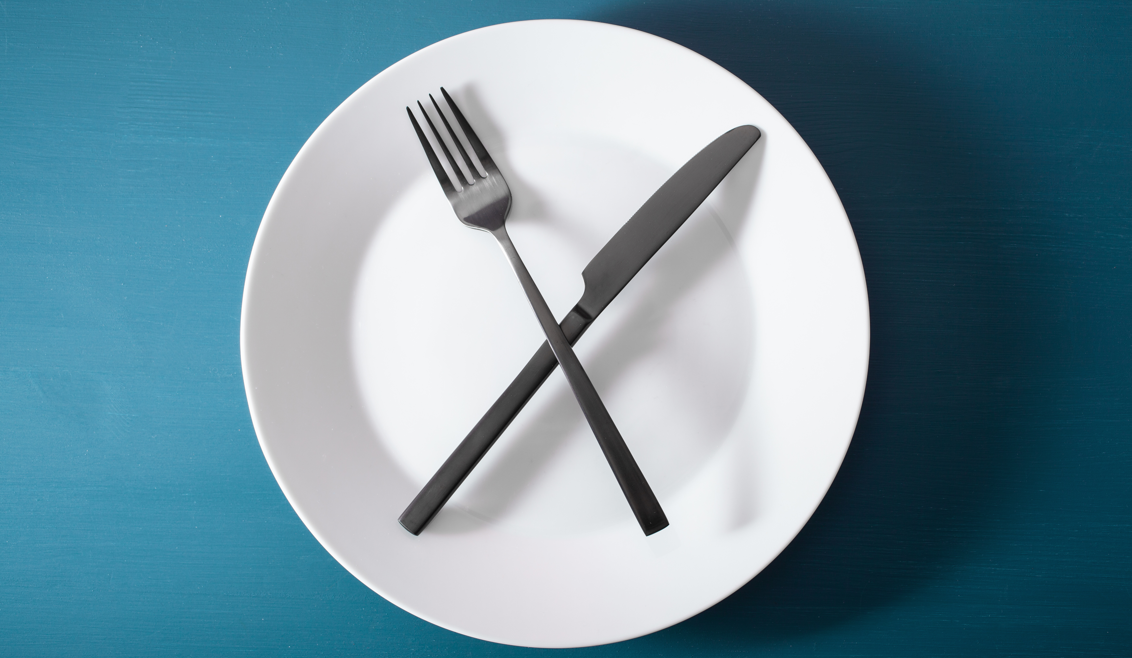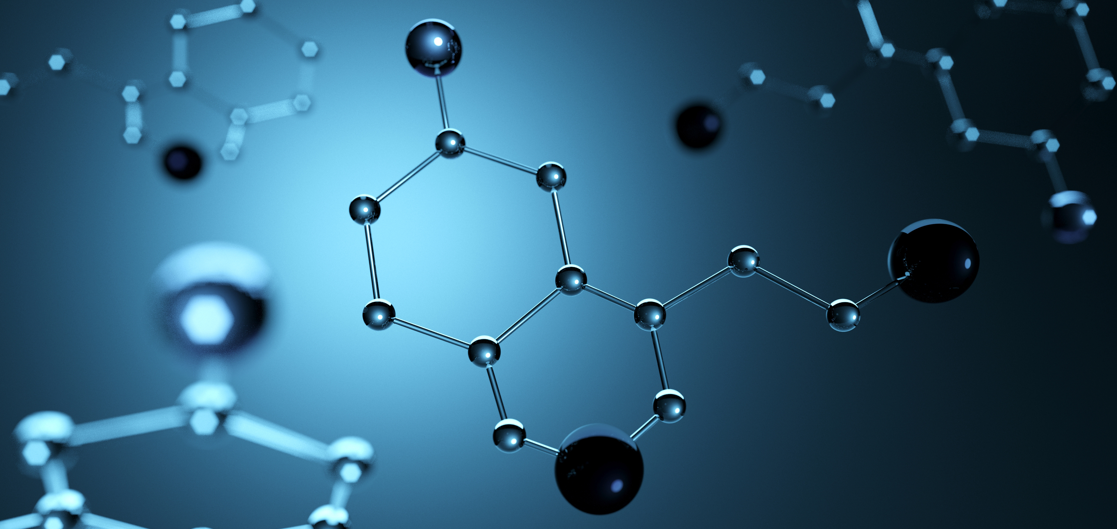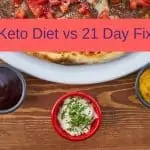From Keto to plant-based, there are a huge array of different diets available no matter your needs. You’ll likely have heard of the benefits of low carb or the 5:2 Diet for improved weight loss, or perhaps juice diets caught your eye for their supposed power to detoxify and enrich the body with micronutrients.
If you’ve been struggling with hormonal imbalances or menopausal issues, however, you’ve no doubt encountered the idea of the Hormone diet: a nutritional intervention that claims to be able to directly influence the way your hormones behave.
During the second year of my degree, I became particularly interested in woman’s fat loss and this particular population’s dietary considerations. Along with research into conditions such as Type 2 diabetes and metabolic syndrome, I came to understand that hormonal influences can contribute a great deal when it comes to losing weight and staying healthy. While calories in, calories out will always be the core of any fat loss protocol, it’s not always as simple as that.
In this guide, I’ll provide a detailed, academically sourced overview of exactly what a hormone diet is, how it’s supposed to work, and whether it’s right for you!
Topic Contents
Bottom Line Upfront
This guide covers everything you need to know regarding hormone diets. If you just want the gist, a hormone diet is a specific nutritional protocol that’s mostly aimed at women who have hormonal imbalances. The problems are supposed to have contributed significantly to excess weight gain.
The premise is that by manipulating our diets, we can influence a positive hormonal change in the body to reverse it.
The sections below cover the idea behind the diet in more depth. Firstly, I’ve gone through how: how hormones influence weight fluctuations to cause someone to gain weight. I’ll then delve into whether or not these diets work and if they’re the right choice for you. You’ll also find a handy Frequently Asked Questions section at the bottom.
Be assured that everything I discuss will be academically referenced; you can find a full list of the scientific papers I’ve discussed at the bottom of the article.
What Is a Hormone Diet?
So, I’ve briefly gone over the definition in the introduction, but let’s get more specific.
What is the structure of the diet compared to say, low carb? And if a diet can manipulate our hormones, what sort of foods are implicated?
The concept is considered to have originated with Neuropathic doctor Natasha Turner. Her 2010 book, The Hormone Diet, was a national bestseller. Its promise was simple but bold: Lose fat. Gain strength. Live younger longer.
Unlike other popular diets which focus on one specific outcome, the hormone diet addresses several different lifestyle areas. It aims to eliminate problematic, hormone-disrupting foods and junk foods, and it augments this effect through physical exercise and good mental health practices.
The original diet lasts six weeks in total, and throughout that time, the dieter will progress through three specific stages. These are as follows:
- Stage 1: This phase consists of a two-week detoxification period. Essentially, the aim here is to remove as many potentially problematic foods as possible. The book relays an exhaustive list and the reasons these foods can disrupt hormonal balance, and you’ll also remove all junk foods and processed sugars, along with dairy, gluten, alcohol, caffeine, and other groups.
- You’ll then monitor how you feel to see if your condition has improved. The book also recommends you take an array of supplements during this phase if you need them — such as omega oils, vitamins, minerals, and probiotics.
- Stage 2: Having cut out the aforementioned food groups, Stage 2 consists of introducing some of the banned items back in. Once again, you’ll monitor how you feel. Whether you feel better or worse after the reintroduction should theoretically tell you whether that food is playing havoc with your hormones.
- While foods like dairy and peanuts are on the cards for reincorporation, you’ll still continue to cut out items that are considered universally unhealthy, such as refined sugars, trans fats, and others — those considered man-made foods.
- Stage 3: The last and final stage shifts the focus away from diet and onto physical and mental well-being. You’ll focus on cardiovascular exercises — such as walking, running, or swimming — and strength training — such as circuit workouts and weight lifting.
- Now, there are many, many books to propose a hormone-centered diet plan, but the majority follow the foundation laid out above: an initial period of cutting out a large group of potentially reactive foods from your diet and slowly reintroducing them while monitoring your reaction carefully. At the same time, keep junk food to a minimum and ensure you’re taking care of your physical and mental health.
- It all sounds great in principle, but is the core claim of modulating the function of hormones legitimate? We’ll need to briefly go over what a hormone is before we answer that question, as well as how they can cause problems in the first place.
Hormones: A Balancing Act
Hormones can best be described as your body’s chemical messengers. We’ve all heard of the analogy of the brain as a master computer, and we can think of hormones as the actualized instances of our brain working to regulate the body and maintain homeostasis (balance).
As you can imagine, hormones perform a large array of essential functions, and there are many different types of hormones. They regulate several key bodily parameters such as building and breaking down (metabolism), sexual function, and mood.
Considering the importance of those systems, we can see how having a hormonal imbalance can get problematic fast, so what sort of issues can occur? There are far too many to cover in detail in one article, so let’s break things down as they pertain to the most common reason people might want to use this diet: to reverse weight gain.
There are other hormones beyond what I’ve covered below, such as Peptide YY and its effects on appetite or Prolactin and its association with obesity, but those listed are the ones most commonly associated with the problem.
Leptin & Ghrelin
Leptin is a crucial hormone regarding nutritional weight management. Secreted by the hypothalamus of the brain, it functions to suppress appetite and hunger. It’s Leptin’s job to balance the quantity of consumed food with energy expenditure — this is the hormone that signals your brain to tell the body it’s full and that there’s enough energy. After eating, Leptin is elevated and signals the brain to tell it there’s enough energy and therefore no need to eat for now. Given Leptin’s role in signaling fullness, then, why would it contribute to weight gain? Leptin is made by the body’s fat cells, so if a person is carrying excess fat, they produce more Leptin. The overstimulation of Leptin causes something known as Leptin resistance: this is where the brain becomes unable to adequately interpret the signals of the hormone. Without the Leptin signal, the brain assumes adequate energy isn’t present and tries to hold onto body fat because it thinks it’s starving. The person wouldn’t get the signaling that they’re full, either. The Ying to Leptin’s Yang, so to speak, is Ghrelin. Ghrelin is most commonly known as the hunger hormone: its job is to send a signal to your brain telling your body that you need to eat, and it’s responsible for the feeling we experience in the pit of our stomach when we’re hungry. Research has shown that while Grelin is paradoxically lower in people who are overweight or obese, these populations are much more sensitive to its effects. Hunger is then elevated chronically, and combined with the problems with Leptin, regulating weight can become very tough.
Estrogen & Progesterone
Similar to Leptin and Ghrelin, Estrogen and Progesterone have a close relationship. Both hormones rise and fall during a woman’s menstrual cycle and both decrease substantially during menopause.
Regarding Estrogen, levels increase when body fat increases, and body fat increases when Estrogen increases.
When Estrogen drops during menopause, the body seeks out other sources that can be used to produce the hormone. Lipids (fat) are a major source, so we start converting more total energy to fat to account for the Estrogen deficit.
Progesterone has similar implications. For one, the hormone has a huge influence on driving hunger during periods of fluctuation. It’s also implicated in promoting insulin resistance, and it can even blunt muscle protein synthesis, making it more difficult for women to reap the strength and body composition benefits of resistance training.
Insulin
You’ve probably heard of insulin as it pertains to Type 2 diabetes: it’s a delivery hormone secreted from the pancreas. Insulin’s primary job is to take glucose (carbohydrate energy) from the bloodstream and deliver it to our body’s cells to be utilized for fuel.
In people who are significantly overweight or have type 2 diabetes, Insulin resistance can occur. Due to excess intake of refined sugars and therefore the constant stimulation of Insulin, the body’s cells become resistant to the effects of the hormone. When this happens, a myriad of symptoms occur, one of them being excess visceral (organ) fat gain as the liver tries to compensate for the inability of insulin to do its job.
Thyroid Hormones
You might have heard of people with an overactive thyroid gland having problems with weight gain. The gland produces the hormones T3, T4, and Calcitonin, which are responsible for managing the body’s metabolism. If you’re not producing enough of these hormones, Hypothyroidism can occur: this often causes weight gain since the metabolism cannot efficiently burn fat.
This problem makes it more difficult to lose fat through diet due to the need to be in a larger calorie deficit to do so.
Cortisol
Cortisol is our body’s stress hormone, and it’s secreted by the adrenal glands — small saccules that sit atop each kidney. Alongside the hormone Adrenalin, Cortisol is responsible for our Fight or Flight system, which works to increase our heart rate and energy levels so we can escape danger.
In our modern lives, the stress hormones trigger due to the stressors and anxieties we face in our day-to-day lives, rather than an acute need to escape from, say, a Saber Tooth Tiger like our ancestors did. Cortisol is thought to cause weight gain through a negative feedback loop, whereby weight gain can cause more stress, and more stress causes more weight gain.
Why Women?
You might be wondering why the hormone diet is predominantly aimed at women. While men can have hormonal problems too, women’s weight gain issues are often associated with the menstrual cycle and menopause. Where men’s hormones stay relatively steady from week to week and year to year, women’s body’s can be vastly physiologically different from one time to another.
There’s still a lot that researchers don’t know, but one thing is clear — weight regulation for women can be more complex than calorie balance, even if that sentiment still holds true overall. Hormones are ultimately a crucial factor in how our body regulates fat, and the fluctuation of the female hormonal profile can throw what was once a tightly balanced system into a mess.
The general takeaway is that women’s evolutionary burdens of childbearing — and the relative importance of their survival compared to men — make fat loss harder. Alongside issues like having a higher propensity for storing fat after a meal, or having to exercise longer to burn more calories, their constantly oscillating hormones make ease of fat loss difficult to predict.
So the question remains: can we steady these problems through nutrition?
Do Hormone Diets Actually Work?
As with any proposed intervention for the function of improving health, we must always look to the current body of scientific literature to guide us. This isn’t to discount anecdotal successes, of course — a specific diet may well work wonders for someone even despite a large body of replicable evidence. But large population studies that meticulously measure important outcome variables give us the best indication of the success of a diet.
We only need to have a quick browse on Amazon to see the huge array of hormone diet books available, and the dozens of testimonies and reviews from people claiming the process changed their lives. The diet has clearly worked for thousands of people, but the question is, is it the manipulation of hormones through food choices that caused the improvement, or more general aspects?
Unfortunately, there haven’t been any proper studies on the topic. We have plenty of data on why hormones contribute to weight gain, and we have a wide body of literature documenting the effects of weight loss on hormonal profiles, but we haven’t yet had the hormone diet put to the test in a clinical setting. For this, we’d need a trial directly comparing the hormone diet protocol to another diet in two population groups over a set period of time.
Given the fact that weight loss alone affects hormonal profiles, as does being healthier, even this sort of data might not tell us much. How can we be sure that specific foods changed hormones and not an overall response to weight loss? And this is really the crux of it: above all else, these diets promote a healthy lifestyle from all angles. It’s no wonder people with hormonal and weight gain problems have a favorable outcome – irrespective of whether the diet is directly reacting with their hormones or not.
What we seem to have with the hormone diet is a decently laid out plan that works well for general health, even if the reason it says it works isn’t really supported by science. So…does that mean it’s recommended or not?
Is a Hormone Diet The Right Choice For Me?
While we don’t have any conclusive trials on the effectiveness of the hormone diet, we do have a lot of data to support the lifestyle alterations it promotes.
Aside from the obvious implications of eating more fruits and vegetables, cutting out junk foods, and increasing our daily activity, there are also more complex benefits to these changes specific to women’s issues.
We know that menopause can cause a lot of negative, potentially dangerous physiological changes in the body and that regular physical exercise can help blunt the likelihood of those problems from occurring.
Moreover, the summation of the dietary advice in these books looks a lot like the Mediterranean diet — high amounts of fruit, vegetables, fiber, and good fats. Studies have consistently shown the Mediterranean diet as highly beneficial in preventing and reversing menopause-related obesity, as well as promoting reductions in the risk of menopausal co-morbidities such as heart disease.
The overall hypothesis seems to be flawed, but that doesn’t mean you won’t benefit from the principles laid out by Turner, Gottfried, and others. There’s nothing inherently dangerous about the approach, and I think there’s a lot of value in the structure’s three main phases.
Irrespective of hormonal influence, the science is clear that a wide array of foods can cause biochemical reactions which make people feel ill. A gluten intolerance, for example, can make people feel terrible — even if the intolerance isn’t as severe as something like Celiac disease. These intolerances often cause symptoms many people mistake as having a hormonal influence.
Furthermore, the perils of high amounts of refined sugars are clearly documented to be the leading cause of type 2 diabetes — the cessation of which has been found to completely reverse the disease. The same can be said for eliminating alcohol, trans fats, and artificial nitrates. These are known carcinogens implicated in an array of co-morbidities, many of which menopausal women are at increased risk for.
I was also particularly pleased to see the hormone diet’s focus on strength training. While society is much more aware of the benefits now, many of these diet books were ahead of their time with their recommendations for weight-bearing exercise.
Weight training is hugely beneficial to overall health, from preventing age-related diseases such as osteoporosis, sarcopenia (muscle wasting), and even dementia, to the reduction of the risk of cardiovascular disease, diabetes, and cancer.
Finally, the diet’s focus on the importance of mental well-being is the cherry on the cake. Many diet-related issues that have caused weight gain in the first place have a psychological origin, not to mention the very real impact poor mental health can have in manifesting as physical ailments. Beyond that, a woman’s period, and even more so the menopause, can be a hugely psychologically taxing time, and promoting the tools to deal with hormonal fluctuations — even if you aren’t physiologically tackling it — has to be commended.
All of the above considered, it’s no wonder people have seen a huge benefit from these types of diets. I can’t wholeheartedly recommend them based on their ability to control your hormones, but there’s no question that the majority of the advice given within them is underpinned by sound principles.
I do want to instill some sense of caution, however.
A Word Of Warning
As is the case with any diet, it’s not perfect and it’s not all positive. With no tangible evidence that people are actually altering their hormones with the dietary changes laid out in these books, there’s an inherent danger that someone might wish to supplement crucial medication for a hormone-focused diet.
The first line of defense for serious hormonal imbalances is almost always carefully prescribed and monitored medication. If you suspect you have a hormonal imbalance or a hormone-related problem, or you’re struggling a lot with the changes brought about by menopause, you should always seek help from your GP first to see what they can offer you.
Only consider yourself to have a hormonal problem after having actually gotten the appropriate tests and results back. Hormonal issues are a balancing act, and the most important element to treating them will be a combination of sound professional advice along with your vigilance in following it.
If the plan laid out in the hormone diet looks like it would be something that will help you, by all means, give it a go. You’ll no doubt see a benefit if you’re looking to lose fat and improve your fitness and overall lifestyle, but make sure you don’t use it as a be-all-end-all fix for your hormonal problems.
A Word On Hormone Replacement Therapy (HRT)
To finish off, I’d like to provide a brief section on the first line of medication doctors offer for these sorts of problems.
Hormone Replacement Therapy encompasses the replacement of Estrogen and Progesterone — the hormones that decrease exponentially during menopause. It can be administered as a tablet, gels, or patches, and there are some different types of HRT depending on what stage of menopause you’re at.
Because the critical hormones implicated in menopausal symptoms and weight gain are physically re-balanced, HRT is considered the most effective method for managing and controlling the problem.
That’s not to say diet, exercise, and mental health don’t play a role either for the reasons I’ve discussed, but the fact remains that HRT has a wealth of scientific literature supporting its efficacy for directly influencing hormones, whereas dietary interventions just don’t yet.
Having said that, undertaking this therapy is a big decision. It isn’t without possible long-term side effects, so make sure to thoroughly discuss the prospect with your doctor.
Conclusion
I hope this article has helped clear up any confusion you had surrounding the topic of hormone diets. There’s a lot to it, and as is with everything, it’s not as black and white as it may seem. Even though there isn’t tangible evidence to support the role of diet in altering hormones right now, that doesn’t mean there won’t be in the future. Endocrinology is ever-evolving, and one day, we’ll have illuminated the relationship between diet and hormones.
You may find you need to read over these sections more once, so take your time to absorb all the information. If you’re interested in the relationship between diet and women’s health issues in general, I highly recommend reading the work of Lyle McDonald. His articles can be found on his website bodyrecomposition.com. Good luck on your journey, whatever that may be!
Frequently Asked Questions
Answer: It’s natural to be a bit worried about menopause if you’re coming to the age where you’ll most likely be affected. You can’t prevent menopause, but focusing on living a healthy lifestyle will help you prevent complications. Hormone Replacement Therapy is also always an option should you need it. I’d also recommend joining the menopause board on Reddit to communicate with others going through the same.
Answer: There really are an absolute ton of these books out there. Having not sat down and read them all, I can’t personally verify the differences between each one. I have read the original book by Natasha Turner, though, and I think that’s a great place to start.
Answer: I can’t stress enough how important it is to get a formal medical diagnosis before attempting any new diet. If you think you have a hormonal-related health problem, get diagnosed and see what your doctor can advise you rather than initially trying to fix it through diet. Providing you have had your condition explained to you, however, there should be no detrimental effects to starting a diet like this. The diet doesn’t really introduce any radical principles beyond specific strategies for healthy eating, exercise, and mental well-being. None of those aspects are inherently dangerous. I will say, though, to confer with your doctor before using vitamins or supplements. Have your GP issue a blood test for vitamin and mineral deficiencies alongside any hormonal testing to see if you really need to supplement.
Answer: An elimination diet is indeed quite similar to principles laid out in the hormone diet. The diet utilizes the same period of cutting out certain food groups and monitoring how the body reacts while promoting groups that are traditionally considered healthy. The hormone diet differs primarily in its equal focus on exercise and mental well-being and the benefits they can have.
Recommended Reads:
- The Top 10 Best Diets – Find One to Love [Actually]
- Keto v Mediterranean Diet – Which Is Best For You?
- The Best Military Diet Alternatives You Should Know Of
- The Bulletproof Diet Review – Is it a Life-Changing Diet?
- Bulletproof Diet vs Keto Diet – Facts, Stats And All You Need To Know
- The Smoothie Diet Review: Yay or Nay? Decide Here
References
- The role of leptin and ghrelin in the regulation of food intake and body weight in humans: a review
- The Menopausal Transition: Analysis of LH, FSH, Estradiol, and Progesterone Concentrations During Menstrual Cycles of Older Women
- Understanding weight gain at menopause
- Weight gain during menopause: Is it inevitable or can it be prevented?
- The Diabetes Code: Reversing diabetes naturally
- Relation of thyroid hormones to body weight
- Benefits of the Mediterranean diet: Insights from the PREDIMED Study
- Exercise and menopause: a time for positive changes
- Potential health-related benefits of resistance training
- Diet to reduce metabolic syndrome in menopause. The logic for olive oil.
Linden is a keen fitness junkie and loves showcasing nutrition’s important for anyone starting a fitness journey. After his training in Sports Nutrition, Linden loves offering health recipes and workout routines for people of all fitness levels and backgrounds. He believes no matter how old you are or how far you have to go, fitness should be fun!














